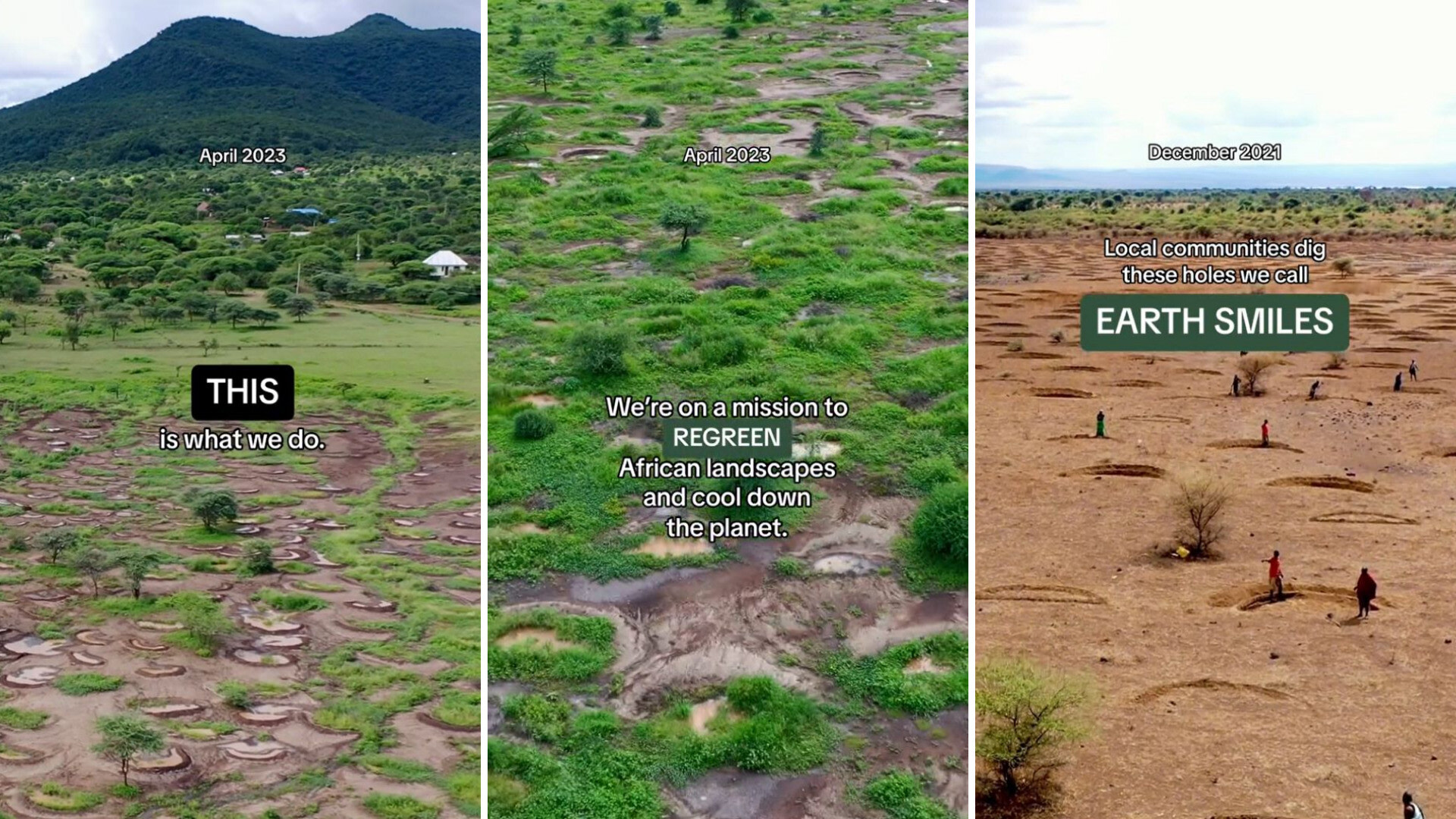The nonprofit Justdiggit has come up with a simple but ingenious way to restore plant life in areas of Africa where there's currently only bare, eroded soil.
Based in Amsterdam and with offices in Nairobi, the organization was founded by Peter Westerveld and Dennis Karpes. Their mission? "To regreen African landscapes in the next 10 years, together with millions of farmers," according to the website.
Africa's northern region experiences desertification, a pattern in which heat, drought, erosion, deforestation, and dust storms turn what was once green wilderness and farmland into a barren desert. The desert itself produces more heat and dust, which accelerates the process, destroying more and more fertile land.
To combat the problem, many African nations and international organizations have tried planting trees and following an assortment of indigenous land management practices, as the Smithsonian explained.
Justdiggit is one of many groups working to reverse desertification and bring greenery back to the African landscape — but its solution may be one of the simplest yet. In a recent video, Justdiggit gives an overview of its method.
"We're on a mission to regreen African landscapes and cool down the planet. How? Well, local communities dig these holes we call Earth smiles."
@justdiggit These #earthsmiles were dug in December 2021. They capture rainwater that will otherwise get washed away over the dry, barren soil. 🌧️ Now, the seeds present in the soil get the chance to sprout, which means: #regreening 🌱🌱🌱 Location: Esilalei, Tanzania 🇹🇿 #climateaction #somethinggood #learnontiktok #africa ♬ Idea 10 (Slowed & Reverb) - Gibran Alcocer
Earth smiles, or water bunds, are shallow, semicircular holes about 16 feet wide and eight feet long. They are made where water runs down a slope, with the round edge toward the bottom of the slope and the removed dirt piled up around that bottom rim. This creates a depression where water pools.
According to Justdiggit, the water doesn't stay long, but it doesn't have to. "The bunds slow down and capture rainwater running downhills, preventing erosion of fertile soil. The water balance in the soil restores, increasing the water availability for the seeds still present in the soil."
In other words, instead of washing away topsoil, the water sticks around long enough to nourish plants — and those plants set off a chain reaction.
As Justdiggit explains, where there are plants, the growing conditions just keep getting better. Plants cool down the immediate area and shade the soil, reducing evaporation. That means even more moisture stays, and the green areas that started in each Earth smile spread. Plus, the plants naturally capture carbon pollution from the air, helping cool down the planet even more.
"We can regreen large areas in a very short amount of time," says the recent Justdiggit video. "We've already dug 315,000 of them!"
It shares photos of the organization's progress in Tanzania, where in just a year and a half, the area the organization worked on went from bare dirt to being half-covered in greenery that has spread enough to hide the original shapes of the holes.
"This is what we do," Justdiggit proclaims.
"Every time I see this I'm so amazed," said one commenter. "What a simple solution that had such an incredible impact."
"Thank you so much, saving our planet one step at a time," said another user.
Join our free newsletter for cool news and actionable info that makes it easy to help yourself while helping the planet.









